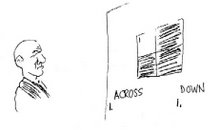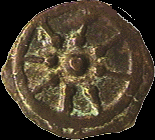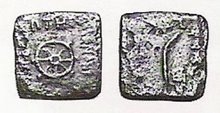Friday, July 6, 2018
Alto-Hypocracy
Republican rules are thus:
"Be ultra critical of others yet hypersensitive to criticism."
Brett Kavanaugh, a Supreme Court front-runner, once argued in favor of very broad grounds for impeachment (of a democrat).
Kavanaugh once argued that President Bill Clinton could be impeached for lying to his staff and misleading the public, a definition of obstruction of justice that would be damaging if applied to Donald Trump.
Kavanaugh’s arguments — expressed in the report of the independent counsel, Kenneth W. Starr, which he co-wrote nearly 20 years ago — have been cited in recent days by Republicans with reservations about him and have raised grave concerns among people close to Mr. Trump.
A federal appeals judge and onetime law clerk for Justice Kennedy, Judge Kavanaugh, 53, is one of only two or three candidates Mr. Trump is still considering for the opening on the court. The others are Raymond M. Kethledge and Amy Coney Barrett.
But Judge Kavanaugh’s role in the investigation of Mr. Clinton’s affair with a White House intern, which resulted in his impeachment in 1998, has raised a red flag among people close to Mr. Trump.
At a minimum, his views about when to impeach a president are sure to come up during a Senate confirmation hearing and would allow Democrats to shine a spotlight on Mr. Trump’s handling of the Russia investigation.
White House officials said Mr. Trump was aware of Judge Kavanaugh’s views. While people close to Mr. Trump said Democrats could exploit his Clinton-era statements, they did not believe this issue torpedoes his nomination.
Mr. Trump’s advisers urged him to make a final decision on his choice for the court before he left Washington on Thursday morning for his Montana rally, so they would have time to prepare proper spin for a rollout of "the winner." But several said they had resigned themselves to the fact that Trump would flip-flop several times before he meets with Putin again. Perhaps Putin will decide.
“We fully expect the Senate will find the president’s choice to have the qualifications, intellect and temperament to serve in [sic] the Supreme Court,” said a deputy press secretary, Raj Shah.
As a Yale Law graduate in his early 30s, Judge Kavanaugh was one of the primary authors of Mr. Starr’s report to Congress, which said Mr. Clinton had lied under oath and concealed evidence of his relationship with an intern, Monica Lewinsky.
The report laid out 11 grounds for impeachment, two of which are drawing scrutiny in the context of the investigation by the special counsel, Robert S. Mueller III, who is looking into whether Trump associates aided Russia’s interference in the 2016 election — in an investigation that has been expanded to include whether the president tried to obstruct the inquiry itself.
First, the Starr report said that Mr. Clinton lied to his aides about his relationship with Ms. Lewinsky, “knowing that they would relay those falsehoods to the grand jury.” Second, it said he lied to the American public, and that senior officials, including the press secretary, then relied on those denials in their own misleading public statements.
“The president’s emphatic denial to the American people was false,” the prosecutors wrote. “And his statement was not an impromptu comment in the heat of a news conference. To the contrary, it was an intentional and calculated falsehood to deceive the Congress and the American people.”
By that standard, Mr. Trump’s misleading statements to the news media, his miasma of tweets and his protracted public debate over whether to speak with Mr. Mueller could all be used against him.
The Starr report faulted Mr. Clinton for refusing six invitations to testify before a grand jury, saying the refusals substantially delayed the investigation.
Mr. Trump has been debating for months whether to accept Mr. Mueller’s invitation to give an interview, and his lawyers have argued against it.
Under the standard set by the Starr report, Congress should consider that as potential grounds for impeachment.
Mr. Trump also personally dictated a misleading statement to The New York Times about a secret meeting that his son arranged with a Russian lawyer at Trump Tower during the 2016 presidential campaign. Mr. Trump’s lawyers and the White House press secretary, Sarah Huckabee Sanders, then repeatedly and falsely denied that Mr. Trump dictated the statement.
The Starr report faulted Mr. Clinton for turning his press secretary and other White House officials into “unwitting agents of the president’s deception.”
The House ultimately did not adopt all these grounds when it voted to impeach Mr. Clinton. But Judge Kavanaugh’s involvement in drafting them creates the possibility that Democrats would try to make his confirmation hearing a referendum on the standards of impeachment.
And it would force the White House to talk about the Russia investigation during what would otherwise be a welcome reprieve.
Subscribe to:
Post Comments (Atom)



















No comments:
Post a Comment